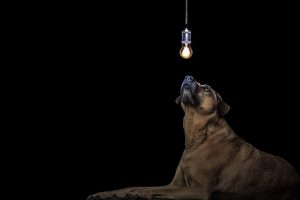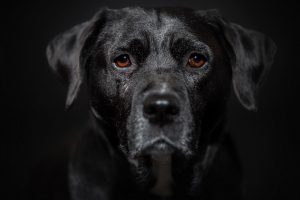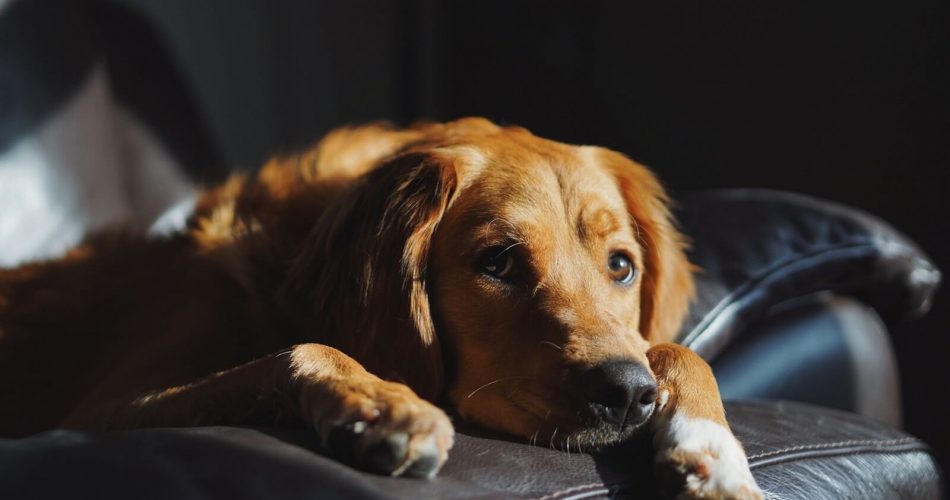All pet parents have the instinct to protect and look out for their best friend, in this case, their pet dog. It is only natural for you to look out for your dog and make them feel more comfortable.
Well, the reason why you’re here reading this article speaks volumes about your concern for your dog. So, what makes you think that your dog’s afraid of the dark? Is it because you feel your dog’s anxiety acts up when you turn off the lights? In that case, there are a number of methods, such as hiring a dog trainer, visiting a veterinary behaviorist, or a vet, that could help you address what your dog is feeling.
You may have many questions such as “do dogs like sleeping in the dark?” or “does my pet have nighttime anxiety?”. These are common questions that arise when you have noticed signs that make you feel that your dog may be afraid of the dark.
How can you tell if your dog is scared of the dark?
Does your dog usually cry when you turn off the light? Do you think that dim light makes your dog feel uneasy? Well, these are just some of the common signs of anxiety that show that your dog may be scared of the dark.
As each dog has different ways to respond to its fear, the signs that your dog is afraid of the dark may not be the same as the sign for any other dog. For example, you may witness that your dog refuses to enter places with low light.
Generally, a dog is more socially dependent on its owners when compared to a cat. So, if you see your dog pulling away from you in places with low light, it is most likely that your dog is afraid of the dark.

Why is my dog afraid of the dark?
While the body language of your dog may make you feel like it is afraid of that dark, there may be many other reasons why your dog is trying to avoid dark spaces.
It is a scientific fact that a dog’s eyes have more robust night vision functions way better than the eyes of a human in dark areas. So, if your dog comes under the category of older dogs, the chances are that your dog has poor vision due to age-related issues, such as cataract formation.
This poor eyesight could be the reason why your dog may feel anxious in the dark, as they require more light to be able to navigate their movements. If you think your dog may have some vision problems, visit a veterinarian to confirm this and start the necessary treatment.
Should I leave a light on at night for my dog?
Another reason your dog may be afraid of the dark is because they don’t like being away from you. Many dogs with pre-existing anxiety disorders, such as separation anxiety, may correlate darkness to abandonment as they cannot see you in darkened places.
If you have had your dogs left for long periods in the dark when you leave for work or any other reason, your dog was made to experience separation from you in the night, and hence, this darkness triggers their separation anxiety.
Pet parents often think that puppies are most likely to suffer from separation anxiety in dim situations; however, this is not entirely true. Dogs of all ages also behave erratically in low-light conditions.
While darkness can be triggering for some dogs, the reason behind this could be health problems such as sight issues. Fear of the dark could also be a sign that your dog may have had a rough past, and dark spaces could trigger memories of this past.
If you now feel that your dog has displayed all the signs of being afraid of the dark, you can leave a night light on for your dog. These night lights will help calm your dog and help to make them feel less anxious.

Do dogs like darkness at night?
Most dogs do not have any problem with darkness and actually get a better sleep when the dog’s sleeping area is dark. But, just like humans, animals also answer differently to different situations.
So, if you notice that your dog starts barking or shows other signs of being afraid of the dark, like when your pupper jumps onto your bed to be closer to you even though it is not allowed to step onto your bed, you must consider keeping your night light turned on.
As your bed carries your smell, your dog feels like it is closer to you and hence, disrespects your orders as a way to comfort himself. Older dogs struggle with sensory issues as their light-sensitive cells weaken with age. Therefore, they require more light at night to feel safe.
So, while the question “do dogs like darkness at night?” is subjective, as responsible pet parents, it is your duty to pay attention to your pet’s behavior and do your best to make your pet feel safe at night.
Do dogs need light at night?
Does your furry friend behave aggressively, like chewing on furniture or scratching doors and tables when you turn off the lights at night? It is the perfect sign your pet gives you to let you know that you need to keep the lights on in the dark.
Usually, it is unnecessary to keep the lights on at night for dogs. Like most people fear the dark as kids, dogs are also bound to feel the same way as they are not entirely used to this situation.
As dogs get older and bigger, providing a larger space, maybe even away from you, is normal for them to sleep in. This change can also make your dog feel anxious and make it act out.
Hence, there is absolutely no harm in leaving a night light or any other light source for your dog during this transition period in order to achieve a smooth transition.
As dogs regularly want to be able to see their pet parents just to feel safe and protected during the night, you can install a dim light above your bed to create a comfortable atmosphere for your pet.

How to help your dog get over its fear of darkness?
Dogs are quick learners, and with the right kind of support from their owners, they can overcome their fears.
But before you start training your dog to help it overcome its phobia, it is vital to assure that it does not have any underlying health problems. In such a case, no amount of training will make it feel less anxious.
So, first, you must take your dog to a veterinarian who is well-versed with its medical history. If your pet is experiencing premature vision defects or vision loss, it will immediately explain why it feels insecure in the dark.
Once the visit to the vet has made it clear that there are no medical issues, it is finally your time to step in and do your bit.
You can use the same method you previously used to train your pet to do other basic activities, such as shaking your hand. As your pet is already familiar with this method, it tends to be more responsive and learns faster.
You can get better responses by adding unique elements, such as a favorite treat or toy. It is important to remember that your pet will also take time to gradually lower its fear of the dark, just like other animals and even humans. It would be best if you hence remembered to take it one step at a time.

Final Words
To summarize this article, it is entirely normal for your dogs to be afraid of the dark, and there is nothing to worry about.
By visiting a vet, or a veterinary behaviourist for more clarity and better advice, you can help your pet slowly become less afraid of the dark.
You can also bring in more light into the darkest areas of your house as an easy tool to lower this fear of the dark. Creating a special structure of training that will help your pet face its fear of the dark over a given period of time also increases your chances of success.
As long as you assure your dogs that you are there to protect them always, nothing is impossible, and you will definitely see a change!

